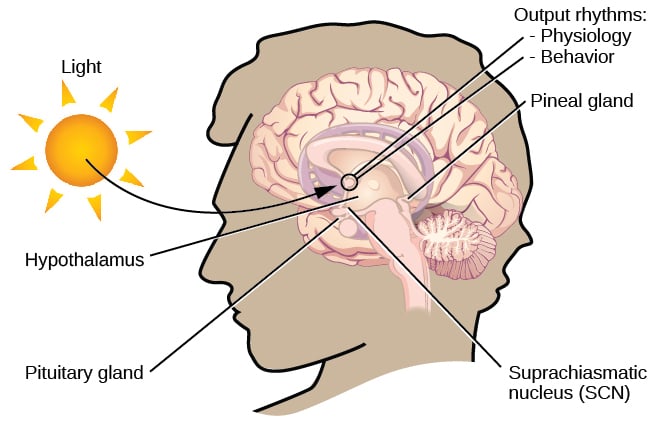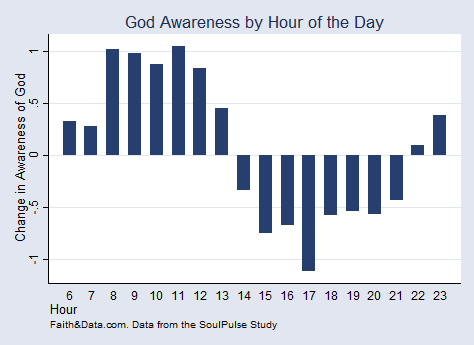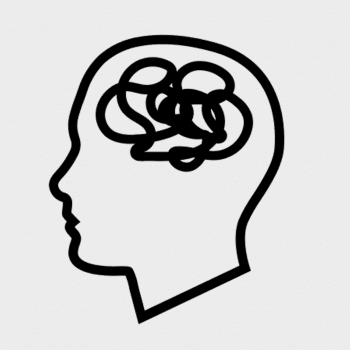What if I told you that there was a prayer perfectly suited to your biology? There is: The Liturgy of the Hours. This prayer of the Catholic Church is a powerful way to lean into how you are wired.
But to understand this, you first need some science.
What is a circadian rhythm?
The circadian rhythm is your body’s inner biological clock. It’s regulated by genes located in cell throughout your body, but the master biological clock is a cluster of 20,000 cells in the hypothalamus. This group of cells is called the suprachiasmatic nucleus. It sends proteins to the rest of the body to signal the time of day.

The purpose of the circadian rhythm is to make sure that your body’s functions all run on the same schedule. All by itself, it’s not exactly 24-hours long; there is a small mismatch. Therefore, your internal clock uses the light-dark cycle of the sun to resets itself daily.
This cycle is essential for regulating your hunger and metabolic rate. It’s also known to regulate your sleep and wakefulness patterns. But the effects of the circadian rhythm extend to important functions such as heart rate and blood pressure, temperature regulation, and even hormone levels.
Respect your circadian rhythm
Disrupting your circadian rhythm is a bad idea. This typically happens with business travelers and in night shift workers. But it can even occur through getting up unusually early, having meals at odd times, or through using blue-light technology late at night.
Since the circadian rhythm is involved in so many essential functions, the effects of a disrupted rhythm are broad. Your digestion and metabolic rate can get thrown off, giving you cravings or abnormal hunger. It’s harder to stay awake in class, and harder to fall asleep at your usual time at night. With a disrupted rhythm, you’re more likely to be impulsive and aggressive, and slower at processing and thinking. And with chronic disruption of circadian rhythms, you are more likely to develop diabetes, cancer, obesity and depression.
A daily rhythm awareness of God
The daily rhythmicity of human life extends to our spirituality. A fascinating study published last year by Kucinskas et al examined how experiences of meaning vary over the course of the day. Researchers used a smartphone app to ask study participants, at random times, what they were doing and feeling. They found that people experience most meaning while engaging in religious and spiritual practices, and in general over the course of the workday. Interestingly, they also found that awareness of God deepens and prolongs experiences of meaning. This “sacred awareness” follows a daily pattern: it peaks in the late morning, declines through the afternoon, and rises again by nighttime.

Live into your biology
Our spirituality follows a daily rhythm. This makes sense, because we are fundamentally embodied creatures who come to experience and love God in and through our corporeality.
And this suggests that, in order to grow in our experience of meaning and awareness of God, we should lean into our biology. Rather than fighting the daily patterns of our brains, bodies, and spirits, we should try to live “in tune” with our natural rhythm. By following our circadian rhythm, we will have more energy and self-control, enhanced mental and physical health, and an improved ability to be present in the moment.
What does it look like to live into your biology?
Form habits that punctuate your day, from beginning to end. Form a morning routine that helps you start the day with energy and intentionality. Get daily exercise. Work hard during the day, but take breaks to purposefully step away to rest and reflect. Eat regular meals at regular times. And at the end of the day, form a night routine that prepares you for sleep.
A circadian prayer
And when it comes to your spirituality, the Church has the best way to live into your daily rhythm: the Divine Office. Also known as the Liturgy of Hours, this is the official prayer of the Catholic Church. The Church developed this prayer in obedience to the Lord’s command to pray without ceasing. It is a rich collection of prayers, hymns, psalms, and readings. They change each day and throughout the seasons.
The Divine Office is beautifully composed in a daily rhythm: the Office of Readings, Morning Prayer (Lauds), Daytime Prayer (Terce, Sext, or Non), Evening Prayer (Vespers), and Night Prayer (Compline). Whether you choose to pray one or all of these, the prayers punctuate your day in a cyclic pattern, interweaving and orienting your circadian rhythm to the praise of God.
Prayer is an incredibly powerful way to reshape your brain, settle your mind and heart, and bring you into dialogue with the Lord. When the prayer is regularly interspersed throughout the day, it increases your awareness of God and consecrates all that you do to Him. In the words of Canticum Laudis, “The purpose of the Divine Office is to sanctify the day and all human activity.”
Don’t let this prayer turn into a mechanical exercise: let it elevate your awareness of God and reawaken you to the constancy of His love!
Further reading recommendations
Charles Peguy’s poem The Portal and the Mystery of Hope contains a beautiful passage on the sacredness of sleep, of obeying your limits, of trusting in God and hoping in the new morning. Find it here.
He whose heart is pure, sleeps. And he who sleeps has a pure heart.
This is the great secret to being as indefatigable as a child.
To have that strength in your legs that a child has.
Those new legs, those new souls
And to start over every morning, always new,
Like the young, like the new
Hope.











